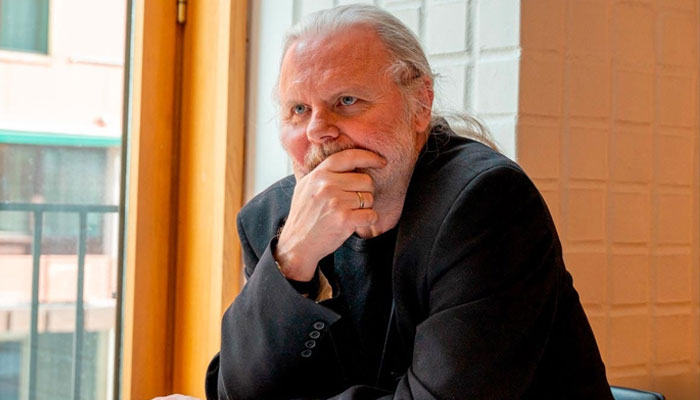Nobel Prize in Literature goes to Norwegian author Jon Fosse for innovative works
Jon Fosse won the award for his groundbreaking plays and prose, which eloquently articulate the unspoken
October 05, 2023

The Swedish Academy Thursday announced that the Nobel Prize in Literature for 2023 has gone to Norway's Jon Fosse, whose plays enjoy wide popularity on the contemporary global stage.
Fosse was recognised "for his innovative plays and prose which give voice to the unsayable," as stated by the Swedish Academy.
In response to the announcement, Fosse expressed his gratitude and said, "I am overwhelmed and grateful. I see this as an award to the literature that first and foremost aims to be literature, without other considerations."
Anders Olsson, the chairman of the Nobel committee, noted that Fosse had become an innovator through his ability to evoke the sense of loss of orientation, which paradoxically leads to a deeper experience akin to divinity. Fosse's writing is characterised by its form, often saying more through what is left unsaid than through the words on the page.
Comparisons to Samuel Beckett are common due to his minimalist style, relying on simple language, rhythm, melody, and silence to convey his messages. Some of his major works include "Boathouse" (1989) and "Melancholy" I and II (1995-1996).
Jon Fosse, 64 years old, had been a subject of Nobel speculation for several years before receiving the prestigious award. His extensive body of work includes plays, novels, poetry collections, essays, children's books, and translations, primarily written in Norwegian Nynorsk, one of Norway's written forms of languages. While Fosse is celebrated as one of the most widely performed playwrights globally, his prose has also gained increasing recognition.
Fosse's upbringing was marked by strict Lutheranism, but he later embraced Catholicism in 2013. After initially studying literature, he made his literary debut in 1983 with the novel "Red, Black," known for its narrative complexity. His latest work, "Septology," a semi-autobiographical magnum opus spanning seven parts across three volumes, runs to 1,250 pages without a single full stop, and the third volume was shortlisted for the 2022 International Booker Prize.
Despite facing financial struggles as a writer in the early 1990s, Fosse discovered his passion for playwriting, leading to the creation of "Someone is Going to Come." Subsequently, he gained international acclaim for his play "And We'll Never be Parted" in 1994.
Fosse's work has been translated into approximately 50 languages, with his plays having been performed over a thousand times worldwide. He described his writing as focusing on humanity rather than traditional character-driven plots.
The Nobel Prize in Literature includes a medal and a prize sum of 11 million Swedish kronor (about $1 million). Jon Fosse will receive the Nobel Prize from King Carl XVI Gustaf at a formal ceremony in Stockholm on December 10, the anniversary of the 1896 death of scientist Alfred Nobel.
This recognition of Jon Fosse's contributions to literature underscores the Swedish Academy's commitment to a more global and gender-equal literature prize following the #MeToo scandal in 2018.









